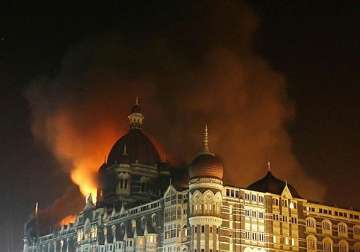Mumbai, June 12: Maharashtra Government has approached the Supreme Court challenging the Bombay High court's decision of acquitting Faheem Ansari and Sabauddin Ahmed in the 26/11 terror attack case; three months after the two were acquitted due to lack of evidence.
Senior government sources privy to the case said that an appeal has been filed with the Supreme Court claiming that the trial court and the High Court had erred in its judgement of acquitting them despite evidence to suggest that the two were involved.
The prosecution team of the Maharashtra Government led by Ujwal Nikkam was left embarrassed on two occasions in the trial and the High Court, when evidence submitted by the police was rejected.
The Bombay High Court had on February 21 this year acquitted Faheem and Sabauddin, accused of being co-conspirators and aiding and abetting terror outfit Lashkar-e-Taiba (LeT) in conducting the dastardly attacks.
The duos were in May last year acquitted by the trial court due to lack of evidence. They were tried with lone surviving Pakistani gunman Ajmal Kasab, who was convicted and awarded death penalty.
According to the police, Faheem and Sabauddin had prepared maps of several vital locations of Mumbai and handed it over to LeT members who had planned the attack.
The claims of Mumbai Police fell on its face after revelations of Pakistani-American Lashker terrorist David Headley. His arrest and subsequent statement had punctured police theory of criminal conspiracy involving only Ansari and Sabauddin.
The assessment by the Mumbai Police is reflected in its appeal before the High Court, filed five months after the Headley revelations, in which its elite Crime Branch is silent on the role of Headley while contesting the acquittal of Faheem Ansari and Sabahuddin in the November 26, 2008 attack that left 166 people dead.
The focus of Mumbai Police through its Special Public Prosecutor Ujjwal D Nikam was that the terrorists intruded into the country's financial capital with the help of hand-written maps drawn by Ansari.
The two had, however, been discharged by the Special Judge M L Tahaliyani saying that better maps were available on internet.
Headley, who was recruited by Pakistan-based Lashker-e-Taiba (LeT) terror group, has confessed to the US authorities and India's National Investigating Agency (NIA) in front of a magistrate about his role in carrying out the survey of the locations attacked by the terrorists on 26/11.
The High Court had, however, acquitted the duo observing, “the view taken by learned Sessions judge so far as involvement of Ansari and Sabahuddin in this case is concerned, cannot be called unreasonable, palpably false, manifestly erroneous and demonstratively unsustainable which merits our interference.”
The High Court, in its judgment, said that the map allegedly handed over by Faheem, who is already an accused in the CRPF camp firing case at Rampur in Uttar Pradesh, to a person in Nepal could not be corroborated. PTI
Latest India News
